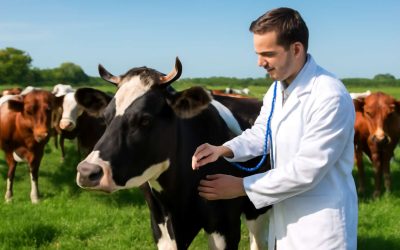
Veterinarians provide care to sick, injured and diseased animals. Their job involves treating these patients using surgical tools, pharmaceutical products and even vaccinations depending on the specialty they specialize in. Veterinarians must work well with animal owners as well as recognize the emotional needs of their patients in order to provide excellent service.
Veterinaries enjoy diverse employment options, from private clinics and hospitals, research labs, animal shelters and zoos to traveling as livestock inspectors for farms and ranches. Furthermore, some veterinarians work as food safety inspectors at borders around our nation in order to ensure safe food supplies such as meat, dairy and eggs for our country’s citizens.
Researchers veterinarians specialize in research, creating new treatments and testing them on animals before making them available to humans. These veterinarians may have degrees in fields like pharmacology, toxicology, virology or microbiology; indeed they have made notable contributions to human health; such as discovering anticoagulant treatments used against certain blood disorders as well as vaccines against malaria and yellow fever disease and even botulism treatments – among others.
Most veterinarians specialize in both domestic and wild animal care; some specialize in specific species like fish, birds, hamsters, horses or rabbits. Other specializations may include equine surgery, dentistry and geriatric medicine as well as wildlife conservation/rehabilitation or military service where they rebuild animal care systems in underdeveloped or war-torn countries.
Are You Thinking of Becoming a Veterinarian? – To become a veterinarian, one must obtain their Doctor of Veterinary Medicine degree from an accredited veterinary college and hold a state license. In order to gain hands-on experience and develop their skills further, many vets participate in internships. During school it can be helpful to join study groups with upperclassmen as these “veterans” know more about what it takes to thrive as veterinarian school students. It may also be wise to visit professors during office hours for advice and guidance regarding best ways to master each subject area.
Veterinarians must have the ability to communicate effectively with animal owners, educate them on proper pet care, and offer recommendations regarding diet and exercise plans for their patients. Veterinarians need strong analytical and problem-solving abilities in order to effectively treat animals that cannot communicate their symptoms to them directly. Furthermore, they must recognize and interpret information provided from x-rays or other diagnostic tests. Veterinarians use this information to determine the appropriate course of treatment for an animal, and to keep up-to-date on advances in veterinary science, they regularly attend seminars and read professional journals – this allows them to provide their patients with cutting edge care.



0 Comments